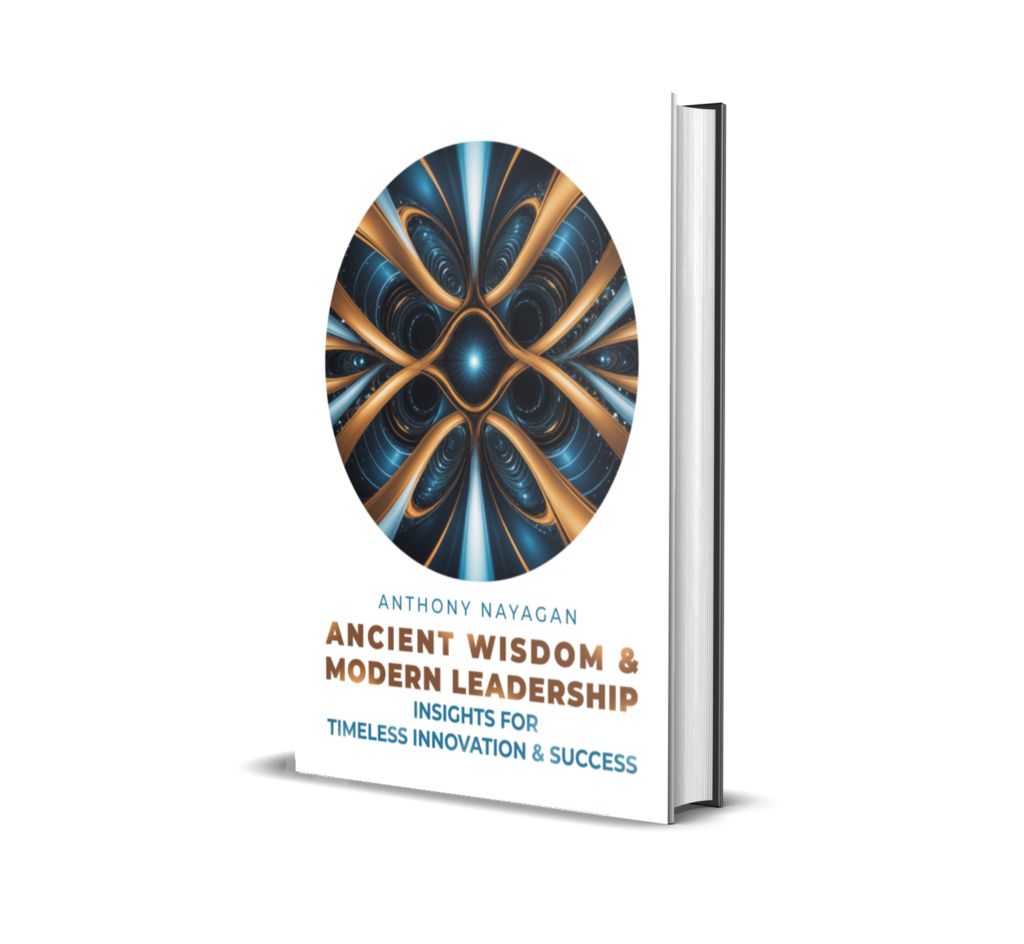
A Path for Spiritual Leaders and Innovators
Introduction
Throughout history, the human quest for deeper meaning and purpose has been shaped by the desire to connect with the Divine. In various cultures and traditions, a Sacred Covenant has existed between the Divine and those who sought to understand and engage with higher truths. This Covenant represents a bond between the spiritual seeker and the Divine from where profound insights, guidance, and wisdom flow.
In many ancient traditions, including those of India, mystics were seen as the primary conduits of this Divine Engagement. These spiritual leaders, through their intense dedication and discipline, tapped into divine sources of knowledge and transformed the world around them. However, with the arrival of Jesus Christ, a significant shift occurred. Jesus opened up the concept of Divine Engagement to all who sought it, not just to the spiritual elite or mystics.
This article explores the idea of Divine Engagement, tracing its roots in ancient practices and examining how it evolved into a universal offering for all humanity through the teachings of Jesus. It also introduces the Theistic Activism approach, which emphasizes active engagement in God’s will, offering leaders, creatives, and innovators a path to realize their divine nature and live spiritually enriched lives.
The Sacred Covenant in Ancient India
Mysticism and Divine Engagement
In India, the concept of Divine Engagement has ancient roots. For thousands of years, mystics and sages practiced a lifestyle devoted to fostering a deep relationship with the Divine. This Sacred Covenant was an unspoken agreement between the Divine and these mystics. Through rigorous spiritual disciplines, including meditation, asceticism, and rituals, they sought to understand the mysteries of the universe, the nature of existence, and the ultimate truth.
The mystics in India were known for their self-realization, where they transcended the material world to connect with the divine essence of life. Their insights were not only transformative for themselves but also shaped the spiritual and philosophical foundations of Indian society. The ancient texts, such as the Upanishads, Vedas, and teachings of the Rishis, all bear witness to this Divine Engagement. Their timeless wisdom has influenced generations and continues to offer guidance to spiritual seekers today.
Enduring Contributions of Mystics
The contributions of these mystics continue to withstand the test of time. From yoga to meditation practices, their spiritual disciplines have become central to global spiritual practices. The mystics were not only philosophers but also healers and guides who left behind teachings that offer pathways to enlightenment and divine connection.
Their lasting influence can be felt in today’s world, where millions of people turn to ancient wisdom for guidance on living a spiritually enriched life. The mystics’ relationship with the Divine paved the way for many spiritual traditions and philosophies that still resonate in modern society.
Jesus’ Revolutionary Approach
Opening Divine Participation to All
While in ancient India, Divine Engagement was often considered the domain of mystics, Jesus transformed this understanding. He introduced a revolutionary concept — Divine Engagement was not limited to those with extraordinary spiritual gifts or religious authority. Instead, Jesus made it clear that anyone could connect with the Divine, regardless of their religious affiliation, background, or level of spiritual knowledge.
Through His teachings, Jesus invited ordinary individuals into a relationship with God, breaking down the barriers that had previously confined Divine Engagement to a select few. This shift opened up the possibility for people to involve God in their lives in meaningful ways, not only in religious practices but also in their creative and innovative endeavors.
Divine Engagement in Creative and Innovative Enterprises
Jesus expanded the scope of Divine Engagement by introducing the idea that God’s presence is not confined to religious rituals. He taught that God can be an active participant in every aspect of life, including one’s creativity, leadership, and innovation.
For creatives and innovators, this concept is particularly powerful. The notion that divine inspiration can flow through their work offers a profound sense of purpose. By inviting God into their creative processes and business ventures, individuals can experience a deeper connection with the divine source of creativity, allowing them to move beyond ordinary and tap into extraordinary levels of wisdom and insight.
Old Paradigm – A New Approach
Theistic Activism
Introducing Theistic Activism
One of the most significant points in this article is the introduction of the term Theistic Activism, a concept based on Jesus’ teachings. This new paradigm has never been formally defined or institutionalized by the Church. Instead, it is a fresh interpretation of Divine Engagement that emphasizes active participation in the will of God.
While traditional religious practices often focus on rituals and faith, Theistic Activism goes beyond these boundaries by encouraging individuals to take an active role in understanding and carrying out God’s will in their everyday lives. It is not about passively receiving divine guidance; it is about actively engaging with it and aligning one’s actions with God’s purpose.
Active Participation in God’s Will
The foundation of Theistic Activism is rooted in the teachings of Jesus: “I tell you the truth, the Son can do nothing by Himself; He can only do what He sees His Father doing, because whatever the Father does, the Son also does.” This verse underscores the importance of modeling one’s actions after God’s will, just as Jesus did.
In Theistic Activism, the concept of divine participation is elevated to new heights. We are not merely observers of God’s work; we are called to actively participate in it. This requires a deep understanding of God’s will and a commitment to carrying out that will in our everyday lives, whether in our personal relationships, our creative projects, or our leadership roles.
Why Theistic Activism Matters for
Leaders and Creatives
Elevating Spiritual Practices
For leaders and creative individuals, Theistic Activism offers a profound way to elevate their spiritual practices. By actively engaging in God’s will, they can deepen their connection with the Divine and bring greater purpose and meaning to their work. Theistic Activism moves beyond traditional religious practices and invites individuals to live with intentionality, constantly seeking to align their actions with divine purpose.
This approach is particularly powerful for leaders and innovators who are looking to make a significant impact on the world. By involving God in their decision-making and creative processes, they can access higher levels of wisdom and insight, allowing them to lead with greater clarity and purpose.
Transforming Leadership and Creativity
Leaders who embrace Theistic Activism are able to transform their leadership style. They are not just making decisions based on their own understanding; they are actively seeking divine guidance and wisdom. This allows them to lead with compassion, integrity, and a sense of higher purpose.
For creatives, Theistic Activism opens up new possibilities for inspiration. By connecting with the Divine, creatives can access limitless sources of inspiration and tap into the universal truths that shape human experience. This approach allows them to move beyond ordinary creativity and enter a space where their work is not just a reflection of their own thoughts but a channel for divine expression.
Breaking Boundaries
Divine Engagement for Everyone
Spirituality Beyond Religious Institutions
One of the most revolutionary aspects of Jesus’ teachings on Divine Engagement is that it breaks free from the confines of religious institutions. Divine Engagement is not limited to those who are affiliated with a particular church or religious group. Instead, it is open to anyone who seeks a relationship with the Divine, regardless of their religious background or beliefs.
This inclusive approach allows individuals from all walks of life to experience the power of Divine Engagement. Whether they are religious, (SBNR) spiritual but not religious, or even agnostic, they can still experience the transformative power of connecting with the Divine. This openness is a key aspect of Theistic Activism, which emphasizes the universal nature of God’s will and the opportunity for everyone to engage with it.
Practical Steps to Engage with Divine Will
Aligning Daily Actions with Divine Will
For those looking to embrace Theistic Activism, the first step is to align daily actions with divine will. This requires a constant awareness of God’s presence and a willingness to seek divine guidance in every aspect of life. It may involve regular practices such as prayer, meditation, and contemplation, where individuals ask themselves how their actions can reflect God’s will.
Creative Expression and Leadership Guided by Divine Inspiration
For creatives and leaders, Theistic Activism encourages them to invite divine inspiration into their work. This can involve setting intentions before starting a creative project or seeking divine wisdom before making important decisions. By consciously engaging with the Divine, they can open themselves to higher levels of insight and creativity, allowing them to elevate their work and make a lasting impact.
Anthony Nayagan’s Mission
Helping Leaders and Creatives Realize Their Divine Nature
At the heart of Theistic Activism is the belief that all individuals have the potential to connect with their divine natureand live a spiritually enriched life. Anthony Nayagan is dedicated to helping leaders and creative individuals realize this potential. Through his coaching, he guides people to move beyond ordinary and tap into the extraordinary wisdom that comes from engaging with the Divine. Anthony’s mission is to empower people to live with greater intention, purpose, and creativity.
A Journey Toward Timeless Innovation
This blog is one in a series of articles that will explore how we can overcome the inevitability of decline to create and innovate in ways that withstand the test of time. How can leaders and innovators draw on ancient wisdom to guide their modern strategies? What practices can ensure that what they build today remains relevant and impactful for generations to come?
If these questions intrigue you, I invite you to visit Supreme Realization and download a prerelease copy of Anthony Nayagan’s “ANCIENT WISDOM & MODERN LEADERSHIP: Insights for Timeless Innovation & Success.”

